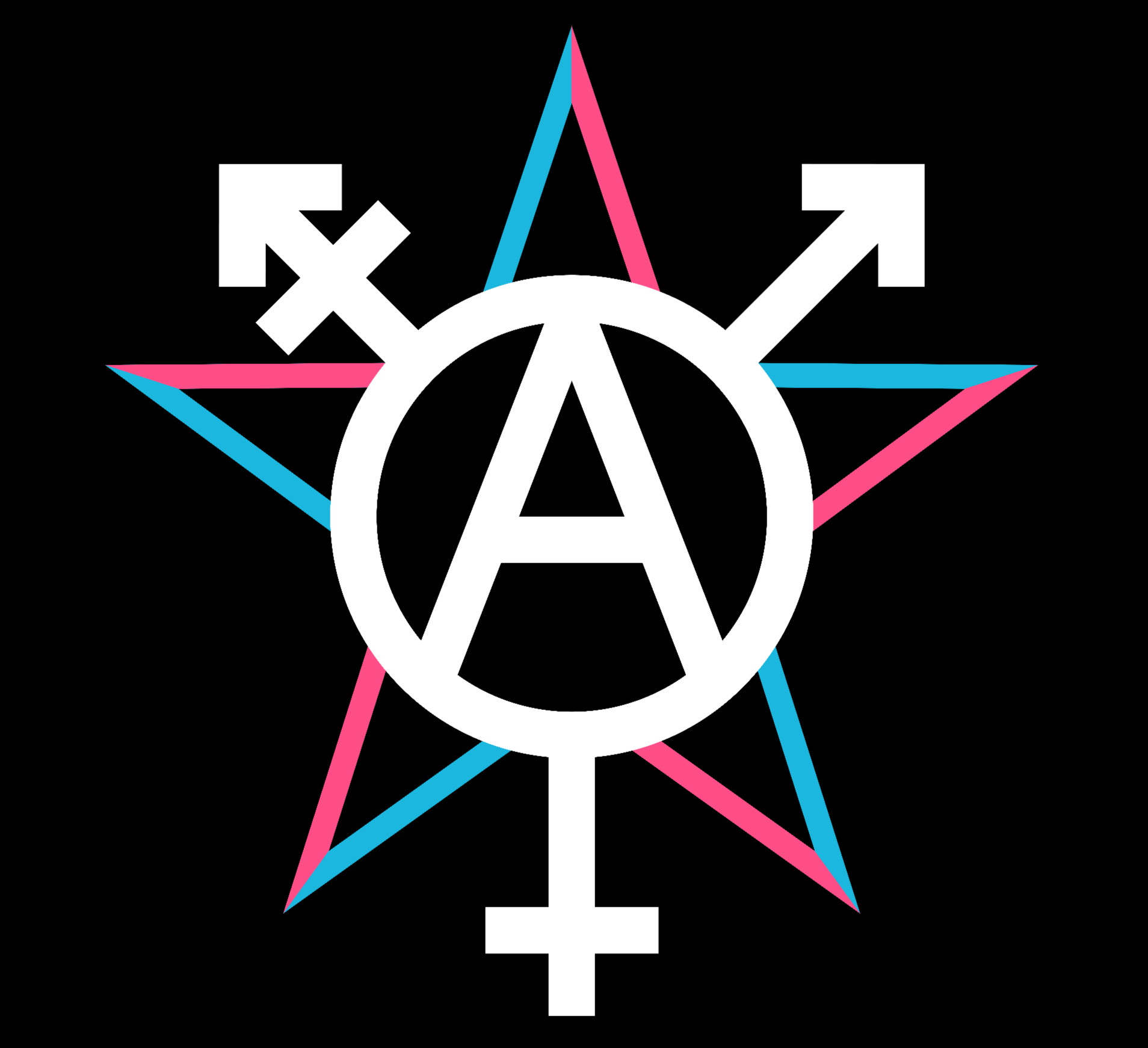People care way too much about correcting people on how to pronounce certain words.
Well, if we don’t know what someone means then what’s the point of language? You’d just be talking past one another…tho yeah, some “mistakes” are easy enough to reconcile in your head and you get what the other person is trying to convey
There is no better way to come off as a pretentious asshat in my mind than to stubbornly stomp a foot and declare “my way of pronouncing this word is correct and everyone else is wrong.”
Language evolves, and some folk can’t handle it.
Yes language evolves, but words only mean things when both parties understand them. Having a general consensus is helpful both in the present and looking back from the future.
There is no better way to come off as a pretentious asshat in my mind than to stubbornly stomp a foot and declare “my way of pronouncing this word is correct and everyone else is wrong.”
Exactly. Which is why correct pronunciation is a good thing - otherwise you’re the pretentious asshat who’s stomping the foot.
How do you define “everyone”, though?
Buddy of mine and I were discussing the word “buoy” a while back. His “everyone” is UK based, and pronounce it “boy”. My “everyone”, being in the Northeast US, pronounce it “booee”. Who’s correct? I’d rather use the pronunciation that doesn’t make me sound like a pedophile, depending on the content in the rest of the sentence: “I took the boat out to the end of the bay and picked up the buoy… That was quite a rough ride.”
Stomping your foot and demanding the other person stick to your pronunciation is a bit unreasonable in that situation, ain’t it?
Reading comments here: TIL
It is even more funny if the reading isn’t in your native language. I can write in English at a C1-C2 level but I am at the B level when speaking as I have no clue how to pronounce most of my regular vocabulary that I use when writing.
Same, and I thought I could improve by learning the phonetic association with groups of letters. English has 11000 different such associations…
They didn’t teach pronunciation when you learned to read English? That’s one of the very first parts of instruction when teaching it to native speakers. That’s also how instruction went when I learned Spanish. Granted, those are both Latin based languages, so I have no idea how it would work for something like Chinese to English.
We learned some general pronunciation rules but that was just for the vocabulary we had to learn for the lessons. The problem is that there are so many exceptions to the rules of pronunciation in English that you have to guess with like every third word if you didn’t hear it before somehow. I mean, look at this
There are quite a lot of exceptions. When I was learning Japanese I discovered that there are something like 2300 different English words that use irregular vowel sounds, and the number for Japanese words was something like 4. It has been 15 years, so I don’t remember the exact numbers, but it was crazy.
Yeah, English and rules. They don’t mix.
That’s because English isn’t a language. It’s three languages wearing a trenchcoat.
They do teach pronunciation in ESL courses, but there is so much nuance to any language that I think most people need some degree of exposure to native speakers to be able to pick up on all of the subtlety that they have had the benefit of hearing from birth. I took years of Spanish myself but my verbal skills never developed nearly as far as my ability to read and write because I didn’t take the opportunity to put them into practice.
That makes sense. I can read Spanish pretty well, and I can understand Spanish when it is spoken by a non-native speaker, but when I hear native speakers it turns into a jumble of sounds I can’t make sense of. I also struggle with the different sentence structure, and the non English sounds, like the rolled R. Basically I can only speak and understand Spanglish and restaurant Spanish.
Probably depends on how much formal education you had and how much is from reading books and stuff on the Internet. The Problem with English pronunciation is, that it’s completely arbitrary, depending from which language the word is originally. I don’t know about Spanish but in French you can usually derive a words pronunciation from it’s spelling and vice versa.
In Spanish, you can derive a word’s pronunciation from its spelling, but not the other way around, due to letters such as b, v, h, ll and y, some of which are interchangeable or mute.
French is also a proscriptive language. There is a governing body that decides which words are “French” and how they should be pronounced.
English is a descriptive language. Words can be borrowed from other languages, and the only “rule” is common usage. If you speak and you are understood, then that’s all that matters. There is no authority or governing body, as much as dictionaries like Oxford, Merriam, and Webster try to pretend to be. That can cause word pronunciations to change over time. There’s actually an interesting phenomenon where English words will be “mis”-pronounced because people make up non-existent rules, and if enough people believe it, then the pronunciation becomes correct through popular usage.
Take the word “forte” meaning a personal strength or expertise. It is a word English borrowed from French, and many UK English speakers use the original French pronunciation, which sounds almost exactly like “fort.” American English speakers, seeing the word written and thinking it didn’t sound French enough, mispronounced the word as “FORtay” and this has become the accepted pronunciation in the USA. Further confusion stems from homonym used in music “forte” which is pronounced “forTEH” because it is the Italian word for “strong” meaning loud or forceful. Linguists sometimes also argue that the US pronunciation caught on because it clearly differentiated the word from the word “fort” meaning a military encampment.
The point is, English has no rules. To quote James D. Nicoll, “The problem with defending the purity of the English language is that English is about as pure as a cribhouse whore. We don’t just borrow words; on occasion, English has pursued other languages down alleyways to beat them unconscious and rifle their pockets for new vocabulary.”
Yeah, I realized after asking that it’s kind of a dumb question, considering I’m a native speaker and I was just writing about how I’ve mispronounced a bunch of words for most of my life that I’ve only ever read.
but in French you can usually derive a words pronunciation from it’s spelling and vice versa.
I think same goes for every sane language
I somehow didn’t realise that “retry” was literally “re-try” and not “ret-ree” until I was in my 20s
I remember this one from video games as a kid. How are you with reedit? ;)
A lot of those prefix words used to be hyphenated until people got used to them, even things like to-morrow way back in the day. Some of the stodgier publications (like the New Yorker) still use things like diaeresis (two dots about a letter) to mark words like coördination, whereas it’s all but fallen out of use otherwise except possibly occasionally showing up in noël.
Got called out once for pronouncing epitome as Epi-tome.
That one stung more than Camus as Cah-mus instead of Cah-moo. At least thats just the French fucking with us.
removed by mod
If it’s any consolation, I pronounced it the same way for years.
It can happen with common words too! Like I didn’t know I was pronouncing Thai food wrong till that John Oliver episode
How were you pronouncing it?
Thigh food
You never heard anyone say Thailand? Or you just never made the connection?
I think it’s the former, I also think I maybe imagined the “Th” when someone else said it. I also may have been surrounded by others who mispronounced both.
So in short I blame society /s
So in short I blame society /s
Ha! Typical millennial
Edit: since it’s not always clear on the internet, I too am being sarcastic.
( ͡° ͜ʖ ͡°)
That’s how I refer to… never mind
That’s adorable
Aw shucks
Para-dig-em checking in. The bulb that lit up when I connected the sound with the word was pretty bright, but made me feel awfully dim. It changed my whole paradigm.
If anyone’s wondering and since it’s not clarified here…
Epitome is pronounced like this: ||UK|US| |phonetic|/ɪˈpɪt.ə.mi/|/ɪˈpɪt̬.ə.mi/| |non-phonetic|epittomee|epiddomee|
epiddomee
I know Americans pronounce Ts as Ds, but reading it explicitly written down is like being poked in the eye
Wait till you find out that they pronounce Ds as semi-trilled Rs!
I don’t know what that is but I’m intrigued and afraid!
They’re just like trilled Rs, but have only one trill, hence semi-trilled.
I’m trying this out with my own mouth and it’s weird
I’ll pronounce a T when you pronounce an R
That’s a new one, what’s wrong with Rs?
Most English people have a non-rhotic accent, meaning not pronouncing the r after vowels so words like “better” become “betta”.
This one seems like it’s very accent-dependent. A cockney geezer will definitely say “be’aah”, but a geordie would say "be’eh and someone from the west country would say “betterrrr”. I think the American pronunciation makes the R sound a lot longer (you can tell I don’t know all the property linguistics words!) so anything shorter probably sounds weird to you.
I’m sure it’s definitely regional, just like accents in the US. But generally in England at least it’s non-rhotic. I know Scotland is different, maybe Wales too
I’ve been an avid reader since I was 6/7 and I hate reading dictionary listings with phonetic spellings as ironically they only make it harder for me to know how to pronounce a word. I’m also a native speaker.
Learning the IPA is quite good in that case
I can’t believe you don’t remember what an upside down e sounds like.
It took seeing videos of Elden Ring lore before it clicked with me that “cuckoo” is “coo-coo” and not “cuck-oh,” like, the chickens in Zelda.
It’s more like “cook-ooh”, the two syllables aren’t the same sound. It’s basically just the sound that actual cuckoos make.
What the shit is a camus.
It’s like a hippopotamoo, but somewhat more existential and obsessed with arcana like boulders and mountains for exercise to discover happiness in life.
that’s the one ! 😁
Uh, thanks for the heads up. I’ve been pronouncing epitome both correctly and incorrectly my entire adult life because for some reason I thought they were two different words.
And they’re gonna fuck with you even further…
Albert Camus [alˈbɛːʁ kaˈmy]
My pet theory is that spoken English and written English are two different languages that kinda translate between them.
In spoken English, “I read books.” doesn’t have ambiguous tense.
You’re not exactly wrong. Spoken english was shaped by mostly the use of common people while writing was exclusively the domain of the clergy and nobility for a very long time.
Noah Webster didn’t go far enuf
Arm-MEG-addon
Makes it sound like a dinosaur, I like it.
I am so with you. I’m not a native speaker. I learned most of my English from reading books - thousands of books, actually. So written English is absolutely no problem.
My pronounciation sucks, and my listening comprehension is horrible, on the other hand.
Had to hear Triumvirate before I said it out lound…but honestly it has never come up in casual conversation, so go figure.
Is not shibboleth just phonetic?
Shibboleth is pronounced just like it is spelled, but some languages do not have an “sh” phoneme. In the story, soldiers used the word shibboleth to identify foreigners trying to sneak into their territory. If they pronounced it “sibboleth,” then the person was exposed as a foreigner.
Modern Greek is one such language. I introduced my friend Sharon to some Greek relatives, and they called her “Saron” so we all started calling her “Sauron.”
How do they shush in greek?
Not kidding, they hiss. It’s fucking surreal if you’re not expecting it.
Depends on where you’re from. Judges 12:5-6.
Basically one group of ancient middle easterners had the sh sound in their dialect, and another group didn’t. That first group used the word shibboleth as a way of testing which group someone was from. Nowadays, the word shibboleth just refers to that kind of test in general. Like someone from Massachusetts figuring out whether you’re a local based on how you pronounce scallop, or someone from Kansas asking you to pronounce “Arkansas”
Although I have no idea how local that pronunciation is. It might be Wichita exclusive for all I know
Dayum, what are the options with scallop? Is that the a you can pronounce as in that, hot or must? Which is the right one?
Most Americans pronounce the a as in “at” or “as,” Massholes (and some other new englanders) pronounce the a as in “awe” or “awl”
The right one is the one that people in your region are used to. As a descriptivist, I believe that as long as people understand what you’re saying, there’s no wrong way to pronounce a word
I think so, but now I’m worried I might be wrong.
Hey. That is not a nice thing to say.
Imagine my surprise when I found out how hors d’oeuvres was pronounced.
Whores duvres?
It’s horses overies, duh
Whores devours, baby.
I mean, some of them do
While we are being pedantic, it’s «hors d’œuvres». But it’s ok, since most people wouldn’t even know where to begin to type such a character.
It also reminds me the many creative ways English speaking journalists have mangled the name of Denis Villeneuve.
Don’t think I ever heard a non-French person pronounce this even remotely close to the real thing, same goes for croissant.
Because croissant is an English word, a loan word yes, but still an English word. Are you going to say a Japanese person is wrong for pronouncing computer コンピューター?
Are culinary exports really “loan words”? Like the whole world calls a fajita a fajita (with various pronunciations), does that make it a loan word and part of the language or are we just using the original name for it? You see what I mean? I’m genuinely asking I have no idea.
I don’t know for computer in Japanese but in french it’s got it’s own word (ordinateur), a good example of this would be “weekend” which is integral part of french vocabulary, that I would call a loan word, not sure about the food stuff though.
Are culinary exports really “loan words”?
Why not?
does that make it a loan word and part of the language or are we just using the original name for it?
I mean, computer like I wrote, is just computer in Japanese. Similarly Tsunami and Honcho are japanese words, loan words, they still refer to their original meaning
French ppl be like “you’re saying the silent letters wrong”
English ppl be like “you’re saying the silent letters wrong”
They actually use the transliteration of that in Japanese with a similar meaning, but as you might expect the French sounds change a lot when they end up in Japanese pronunciation. Imagine my surprise when I found out that oh-dohburu wasn’t actually a Japanese word originally.
To understand certain English words in katakana sometimes you just have to put yourself in the mindset of a racist 💀
Funny thing is, and someone French please correct me if I’m wrong, a French person learning that expression from a book would be able to just pronounce it correctly. The problem outlined by OP is mainly with the English language
I can confirm. But most of us are enable to pronounce correctly the many words that come from English like hamburger, youtube or even New York. Imo the problem is a fairly classic one of lacking the oral reference frame for other languages.
A lot of us were surprised
Shillelagh embodies this for me. None of my guesses were even close.
Looks Irish or I guess Gaelic is the word in looking for? I’m guessing something weird like ji-gah-lo
It is Irish yeah, it’s shill-LAY-lee
Looks like Irish also has varying pronunciations with the same spelling, because the shillelagh -lagh sounds like lee, but in the name Shelagh (or Sheelagh) it’s lah.
chaos, debris, plumber. I hate the english language.
I think this is more attributed to how the people around you spoke rather than strictly reading.
My college roommate and I both grew up reading. My family also read books and one parent was college educated. Her family only read the local paper (6th grade reading level). She was the only reader in her family.
So we both grew up reading, but I could pronounce words she couldn’t simply because the people around me also knew and used them.
The point you made is literally the point in the joke.
You just proved it more right with another example. I’m not entirely sure what you are going for here 🤔
You’re saying the meme’s joke is that reading causes people to say things wrong?






















